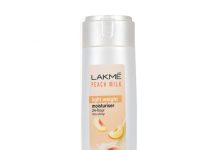Immune system, ADHD: Causes providing children with omega-3 supplements
The omega-3 fatty acids in our diet play multiple roles in building and maintaining our entire body, but they may be especially important for growing children. Let’s look at two benefits: developing a strong immune system and treating Attention Deficit/Hyperactivity Disorder (ADHD).
Boost immunity
Children excel at scraping their knees, getting dirty, making new friends on the playground, and putting things in their mouths that don’t belong to them. All these events reveal them to a range of pathogens, and frequently for the first time. So, their innate immune system (the non-specific one they were born with) needs to be in top shape to help them develop a strong adaptive immune system as well.
Of course, exposure to a variety of bacteria and viruses is key to boosting immunity, but that doesn’t mean parents should overexpose their kids to dirt. Our role should be to make sure they are clean, exercise, sleep well, avoid stress, and eat well. And a key part of feeding them well is giving them enough omega-3s.
- Inflammation:
When your child bumps their head or gets bitten, inflammation usually ensues. It’s his immune system at work. Special cells rush to the site of trauma and cause swelling by enlarging blood vessels and causing fluids and immune cells to seep into damaged tissue.
For most minor injuries, there is nothing to worry about. The wound heals and the inflammation subsides. But when inflammation lasts, it can be linked to a variety of conditions, including joint pain, arthritis, heart disease, asthma, and even certain cancers. And sustained inflammation can cause damage on its own.
Granted, these conditions are rare in children, but as parents, we need to plan. Research shows that docosahexaenoic acid (DHA), eicosatetraenoic acid (EPA) and docosapentaenoic acid (DPA) regulate the production of cytokines – the molecules that cause inflammation – suggesting they can be used to prevent or treat inflammation, and thereby help the immune system work better. Oily fish and sea oil are the best sources of DHA and EPA, while seal oil is also an excellent source of DPA, as is breast milk.
These omega-3s also support a process called endothelial cell migration, which is essential for repairing damaged blood vessels. ADP also has another amazing property: it increases the levels of EPA and ADH already in the body and increases their accessibility.
- Virus
Another thing kids excel at is catching viruses. For the worst, we now have vaccines, but some parents don’t believe in them (especially for the flu) or are lax and skip reminders. And then there’s the common cold. There is no vaccine or cure for the common cold, but they can make everyday life quite unpleasant. In addition, children catch on average twice as many as adults.
But whether your child is vaccinated or not, if their immune system is healthy, they are less likely to get sick and more likely to recover quickly if they do. And boosting the immune system is exactly why parents give their children an omega-3 supplement. The transformation health of your children must good.
Studies also indicate that omega-3s can dissolve the envelopes that surround certain viruses, even causing the viruses themselves to disintegrate. A general encased virus in humans is herpes simplex.
- Managing ADHD:
ADHD is one of the most common neurodevelopmental disorders in children, often lasting into adulthood. It is now generally accepted that it is a medical condition rather than a behavioral disorder, usually with a genetic component. However, its diagnosis remains controversial, and treatments are still being refined.
If you’re concerned your child has ADHD, the US Centers for Disease Control advises looking out for the following signs:
- dream a lot
- forget or lose many things
- squirm or wiggle
- talk too much
- making careless mistakes or taking unnecessary risks
- find it hard to resist temptation
- have trouble taking turns
- have difficulty getting along with others
Management usually involves a combination of behavioral therapy, medication, and promotion of a healthy lifestyle, which includes a good diet. And one of the main dietary inlets is omega-3s.
Our brain is about 60% fat, and two essential components of this fat are DHA and EPA. So, in general terms, these omega-3s are essential for the growth and maintenance of a healthy brain. Evidence also suggests they help prevent and treat ADHD.
In short, just about every aspect of neurotransmission – a cell’s movement of information supports every thought, emotion, and action – is affected by omega-3s. Omega-3s also protect the brain by decreasing low-grade inflammation, the chronic cellular fire that can burn brain cells.
An omega-3 deficiency is bad news for an adult’s or child’s brain. And this is the main reason why there have been further scientific studies performed on the link between omega-3s and ADHD than on any other nutrient.
It then provides a long list of searches with highly suggestive results. For example, blood levels of omega-3s in children with ADHD have been shown to be 38% lower than in children without ADHD therapist near me. Another study looked at a genetic cause and found that children with ADHD had a 60-70% higher chance of a variation in a gene needed to metabolize fatty acids.
Regarding treatment, a meta-analysis found that supplementing the diets of children with ADHD with omega-3s consistently reduced hyperactivity, as rated by parents and teachers. Another found that children with ADHD who took an omega-3 supplement every day for four months were more attentive, less hyperactive, more obedient, less hostile, and spelled better. Another study found that EPA supplementation improved attention and alertness in children with ADHD with low endogenous EPA levels, but children with high EPA levels may be negatively affected by this treatment. And another study found that supplementing children’s diets with omega-3s improved “working memory” — the short-term recall that’s key to learning.
Remember, though, that if you suspect your child has ADHD, seek an expert diagnosis first, then get them tested for an omega-3 deficiency. There is plenty of evidence that an omega-3 supplement can help treat ADHD, and that these supplements are beneficial for everyone in the recommended amounts. But don’t self-diagnose yourself with ADHD and then assume an omega-3 deficiency and start supplementing in high doses.









![Global Archwire Market Analysis [2022] | Technology Developments, Industry Share, Top Competitive Analysis, And Future Projected Growth Report](https://www.thetodayposts.com/wp-content/uploads/2022/06/Profile-02-100x70.png)









